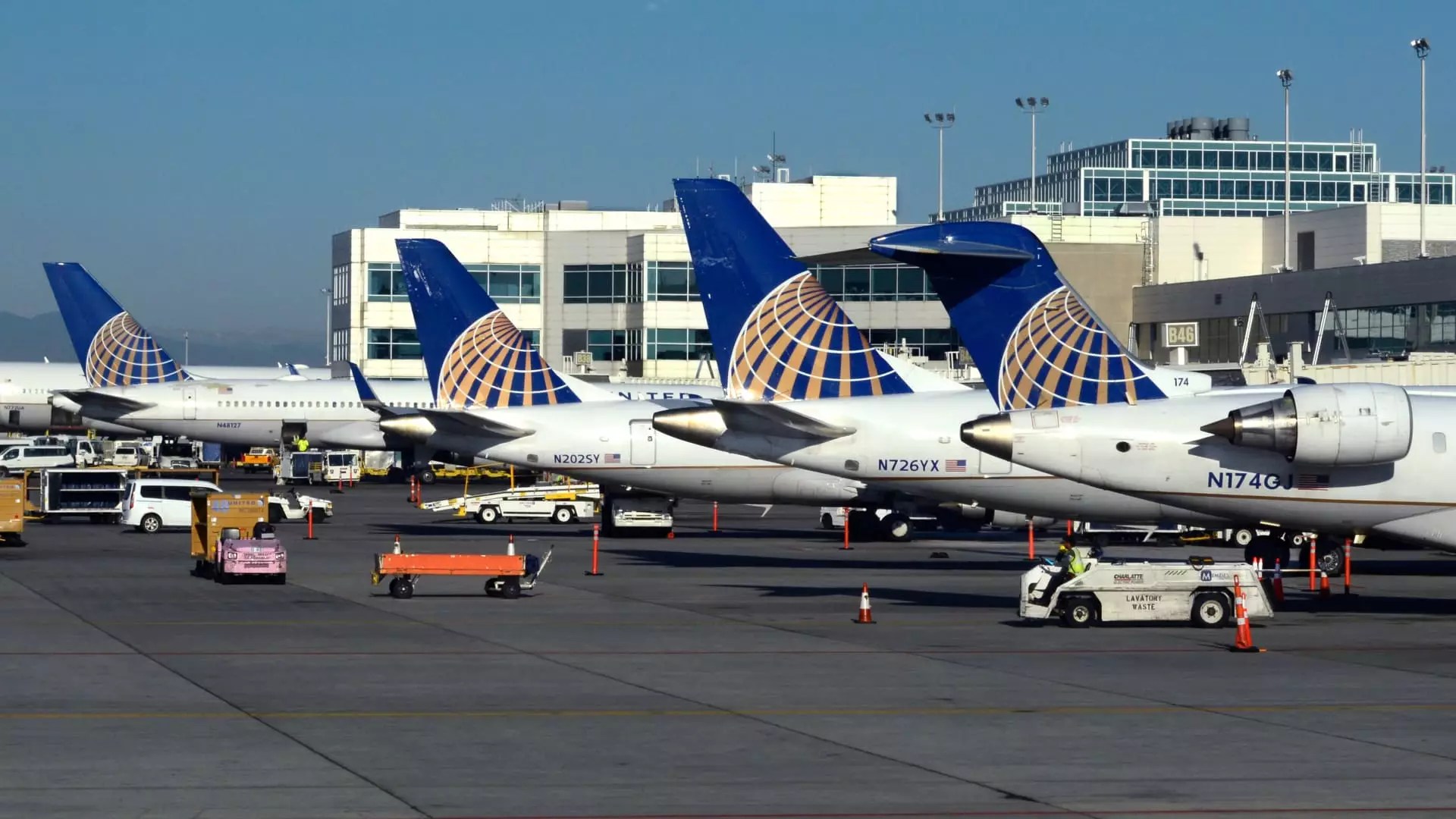The aviation industry, a complex web of cost-cutting measures and passenger justifications, has taken yet another troubling step with United Airlines announcing significant increases in fees for its annual airport lounge memberships and co-branded credit cards. This trend, where airlines continually raise fees while claiming to enhance value, stirs deep discomfort among regular travelers. It raises the question: when did achieving comfort on a long-haul flight morph from a right into a privilege reserved for those willing to foot inflated bills?
A Balancing Act of Value and Exploitation
Richard Nunn, the head of United’s MileagePlus loyalty program, insists that the new fees are justified as they match equally appealing benefits. Yet, one cannot help but ponder whether this assertion truly represents a fair exchange or simply a duplicitous strategy to maintain profit margins at the expense of consumer loyalty. It pains me to see an industry that once revered customer experience pivot towards a relentless pursuit of profit. The idea that “greater perks” will offset rising fees feels like an attempt to placate an increasingly dissatisfied customer base while further prioritizing elite travelers and credit card aficionados over regular middle-class flyers.
Exclusivity Over Accessibility
The rise in fees for airport lounge access and co-branded credit cards signals a shift toward exclusivity that echoes throughout major airlines, including American and Delta. Historically, airline lounges were sanctuaries for weary travelers, a place to unwind amid the chaos of travel. Today, it feels like entering a premium club where the price of admission escalates every few months, leaving ordinary passengers to contend with a cramped waiting area just to board a plane. As the number of premium cardholders swells, the commodification of comfort transforms lounges from spaces of respite into exclusive enclaves for a select few, effectively marginalizing the vast majority of travelers.
Reckless Revenue Growth
United Airlines recently showcased financial prowess with its impressive $3.49 billion in “other” revenue last year. This windfall, primarily sourced from co-branded credit card spending and airport lounge memberships, exemplifies how airlines are aggressively monetizing every aspect of air travel. While it’s certainly commendable to seek revenue diversification, the manner in which this growth is pursued raises ethical concerns. Should travelers be expected to pay more for benefits that were once standard? The industry appears caught in a cycle of short-term financial gain, sacrificing long-term relationships with loyal consumers for quick profits.
The Descent into Profit-Driven Practices
As airlines, including United, continuously hike fees and rein in previously enjoyably accessible perks, they risk alienating a significant faction of their customer base. True fiscal responsibility should not play out at the expense of customer satisfaction. With the tenets of customer loyalty becoming increasingly overshadowed by profit-driven practices, can we still trust these corporations to sustain a viable travel experience? As a frequent traveler, I can’t shake the feeling that we are being forced to navigate an infuriating labyrinth, where the value proposition significantly favors the airline’s bottom line over the traveler’s experience.


Leave a Reply